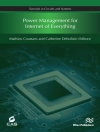This book presents the latest developments in both qualitative and quantitative computational methods for reliability and statistics, as well as their applications. Consisting of contributions from active researchers and experienced practitioners in the field, it fills the gap between theory and practice and explores new research challenges in reliability and statistical computing.
The book consists of 18 chapters. It covers (1) modeling in and methods for reliability computing, with chapters dedicated to predicted reliability modeling, optimal maintenance models, and mechanical reliability and safety analysis; (2) statistical computing methods, including machine learning techniques and deep learning approaches for sentiment analysis and recommendation systems; and (3) applications and case studies, such as modeling innovation paths of European firms, aircraft components, bus safety analysis, performance prediction in textile finishing processes, and movie recommendation systems.
Given its scope, the book will appeal to postgraduates, researchers, professors, scientists, and practitioners in a range of fields, including reliability engineering and management, maintenance engineering, quality management, statistics, computer science and engineering, mechanical engineering, business analytics, and data science.
Spis treści
Reliability Computing.- Modeling and Methods.- Predicted Reliability Modeling.- Mechanical Reliability Analysis.- Fatigue Distribution Functions.- Optimal Maintenance Models.- Maintenance Policies.- System Reliability with Simultaneous Failure on Consecutive Components.- Statistical Computing.- Modeling and Methods.- Wearable Sensor Data Based Human Activity Recognition Using Machine Learning.- Bootstrap Confidence Interval for Regression Coefficients.- Run Rules Control Charts for Coefficient of Variation with Measurement Errors.- Goodness-of-Fit Tests for the Component Lifetimes Distribution Based on the System Failure Data with Known Signature.- Methodology of Using Empirical Distributions to Solve Business Optimization Problems.- Deep Learning-based Scene Understanding Model for Assistive System Related to Alzheimer’s Patients.- Applications and Case Studies.- Modelling the Performance of Capital Constrained Firms.- Integrating Sentiment Analysis in Recommender Systems.- Feature Matching Technique Using Similarity Features Filtering for Image Alignment.- Extended Sentence Similarity Based on Word Relations for Document Summarization.- Developing Alert Level for Aircraft Components.- Application of Machine Learning for Failure Prediction in Manufacturing Process.
O autorze
Dr Hoang Pham is a Distinguished Professor and former Chairman (2007–2013) of the Department of Industrial and Systems Engineering at Rutgers University, New Jersey. Before joining Rutgers, he was a Senior Engineering Specialist with the Boeing Company and the Idaho National Engineering Laboratory. He has served as editor-in-chief, editor, associate editor, guest editor, and board member of numerous journals. He is the editor of Springer book series on reliability engineering and of World Scientific book series on industrial and systems engineering and has been the conference chair and program chair of over 40 international conferences. He is the author or coauthor of 6 books and has published over 170 journal articles and edited 12 books, including the Springer Handbook in Engineering Statistics and Handbook in Reliability Engineering. He has delivered over 40 invited keynote and plenary speeches at various international conferences. His numerous awards include the 2009 IEEE Reliability Society Engineer of the Year Award. He is a Fellow of the Institute of Electrical and Electronics Engineers (IEEE) and the Institute of Industrial Engineers (IIE).












